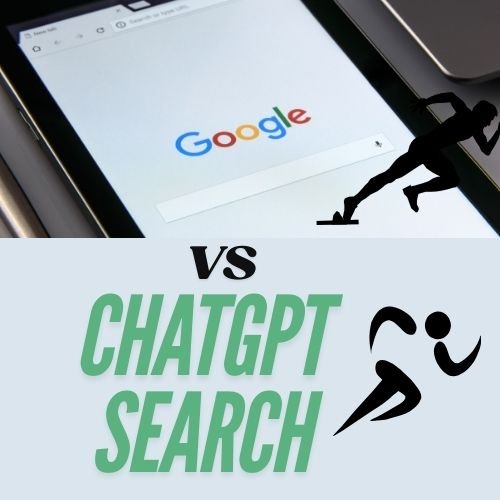
ChatGPT Search vs. Google
ChatGPT Search vs. Google
In an unexpected move that could reshape the search industry, OpenAI has launched its own search engine, ChatGPT Search, positioning itself as a potential contender against Google’s longstanding dominance. Here’s a closer look at ChatGPT’s journey from a language model to a search engine, the current advancements it offers, and the challenges and potential it brings to users worldwide.
ChatGPT’s Evolution
When ChatGPT first launched, it was primarily a conversational AI designed to assist with various tasks—from answering questions to drafting content. Yet, as demand for more real-time, reliable information grew, the limitations of an AI model with no access to the latest web data became evident. The success and rapid adoption of ChatGPT also signaled to OpenAI that there was potential for more practical, real-time applications.
To address these limitations, OpenAI steadily integrated features that would bring it closer to a functional search engine, eventually culminating in the launch of ChatGPT Search. By forging partnerships with major media companies like The Atlantic and The Wall Street Journal for access to trusted sources, OpenAI strengthened its search engine’s capability to deliver reliable, up-to-date information.
What ChatGPT Search Offers!
Unlike traditional search engines, ChatGPT Search utilizes the unique strength of ChatGPT’s conversational abilities and natural language processing to simplify the search experience. Here’s how it stands out:
- Real-Time Information: ChatGPT Search, powered by sources like Microsoft’s Bing, provides live, real-time updates. Whether users are looking for sports scores, weather updates, or stock prices, ChatGPT can supply the latest data—similar to a Google search but with a more conversational twist.
- Contextual Responses: Instead of a standard list of links, ChatGPT Search can summarize information, referencing reputable sources directly within the response. This allows users to receive more digestible answers and avoid sifting through multiple sources for quick information.
- Complex Research Capabilities: For more elaborate queries requiring in-depth research, ChatGPT can now generate customized responses based on aggregated insights from across the web, a potential game-changer for those conducting academic or business research.
- Enhanced Ad-Integration Capabilities: Unlike Google’s sponsored results, ChatGPT’s responses focus on relevance, prioritizing results that align closely with the user’s intent.
Real-World Applications: Comparing ChatGPT Search to Google
While ChatGPT Search is built to streamline the search process, Google remains unmatched in certain areas, particularly with its extensive index of websites and ecosystem of integrated tools. Here’s a breakdown of both search engines in key areas:
- Speed and Scale: Google processes billions of queries daily, offering a staggering volume of information almost instantaneously. By comparison, ChatGPT Search is still in its early phases, and its scale, though growing, has not yet reached Google’s level.
- Interactivity: ChatGPT Search stands out in its ability to clarify, expand, or refine a search query within a single conversation. For users who need iterative information or insights, this interactivity could be invaluable.
- Advertising and Revenue Models: Google’s advertising model is deeply embedded within its search interface, often influencing which sites appear at the top of results. ChatGPT, for now, sidesteps such ads, giving users a more direct path to information. However, as OpenAI grows, it may integrate ads to support the service.
AI Search’s Future
Experts suggest that AI-powered search engines like ChatGPT may shape the next evolution of the internet search experience. Sam Altman, CEO of OpenAI, remarked in a recent Q&A session that ChatGPT Search offers “a faster, easier way to access complex information.” However, the current AI-driven search technology still has challenges, from resource demands to ethical issues in content curation and source credibility.
Investment analysts also observe the potential for AI to revolutionize search. Jesse Cohen of Investing.com noted that the AI-driven approach “is not only influencing engagement but reshaping the fundamental nature of search engines, as users prioritize direct answers over link-based results.”
Practical Tips for Using ChatGPT Search
- Experiment with Conversational Prompts: Users can benefit from crafting their queries as questions or statements rather than keywords to get more detailed, relevant responses.
- Request Clarifications: ChatGPT allows follow-up questions within the same session, making it easy to refine searches without starting over—perfect for users looking to delve deeper into complex topics.
- Evaluate Source Credibility: Since ChatGPT Search cites sources, users should always check the original publications, particularly for essential information, to ensure accuracy.
Real-Life Benefits and Challenges
One user described ChatGPT Search as their “research assistant” during a last-minute vacation planning session. Instead of jumping from site to site, they used ChatGPT to find recommended activities and book hotels, receiving curated information from credible travel blogs. However, another user noted that ChatGPT sometimes provides summaries that overlook nuanced differences in data, underlining the need for further improvements in accuracy and depth.
What Does ChatGPT Search Mean for the Future?
As we stand on the brink of a new era in search technology, ChatGPT’s launch raises questions about the future of information retrieval. Will AI’s conversational capabilities redefine how we interact with digital content, or will traditional search engines like Google adapt quickly enough to retain their dominance?
Moreover, as AI-driven tools like ChatGPT become more integrated into daily life, users are left to consider: How comfortable are we with an AI curating our information sources? And what does this mean for our understanding of truth and credibility online?
ChatGPT’s search engine may not dethrone Google just yet, but it certainly signals a shift in the landscape of digital information—one that could change how we approach search itself.



